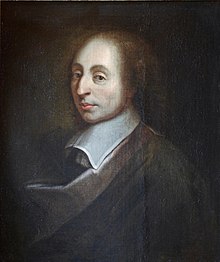Yesterday I talked about Samuel Coleridge and imagination. Today, I talk about another person who grappled with imagination: Blaise Pascal. A philosopher and essayist of the seventeenth century, Pascal lived nearly two hundred years after Coleridge. His time was distinctly different from that of Coleridge. Nonetheless, Pascal's thoughts about imagination offer us some useful insights as we grapple with the rise of what some commentators have called "expressive individualism," the notion that, divorced from any universal moral anchor, humanity is fit only to express individual identity and nothing more.
Pascal observed that as much as we would like to suppose that we humans are creatures of rationality, we are ultimately creatures beholden to our imagination. Our emotions, he noted, play a far greater role in how we live and make decisions than our reason.
Pascal is on to something. Yes, we use reason to make decisions, but no, we do not make decisions solely on the basis our reason. After all, we are creatures of imagination. And we cannot help it: it's how we're made.
So what does this mean today? Pascal was a person of faith. Reason, he observed, will take people to the brink of grasping God. Absolutely. But it is only imagination that will allow them to move themselves to a position where they are willing to believe in the existence of a being whom they cannot visibly see.
In a personal universe, imagination is the road to ultimate understanding.

No comments:
Post a Comment